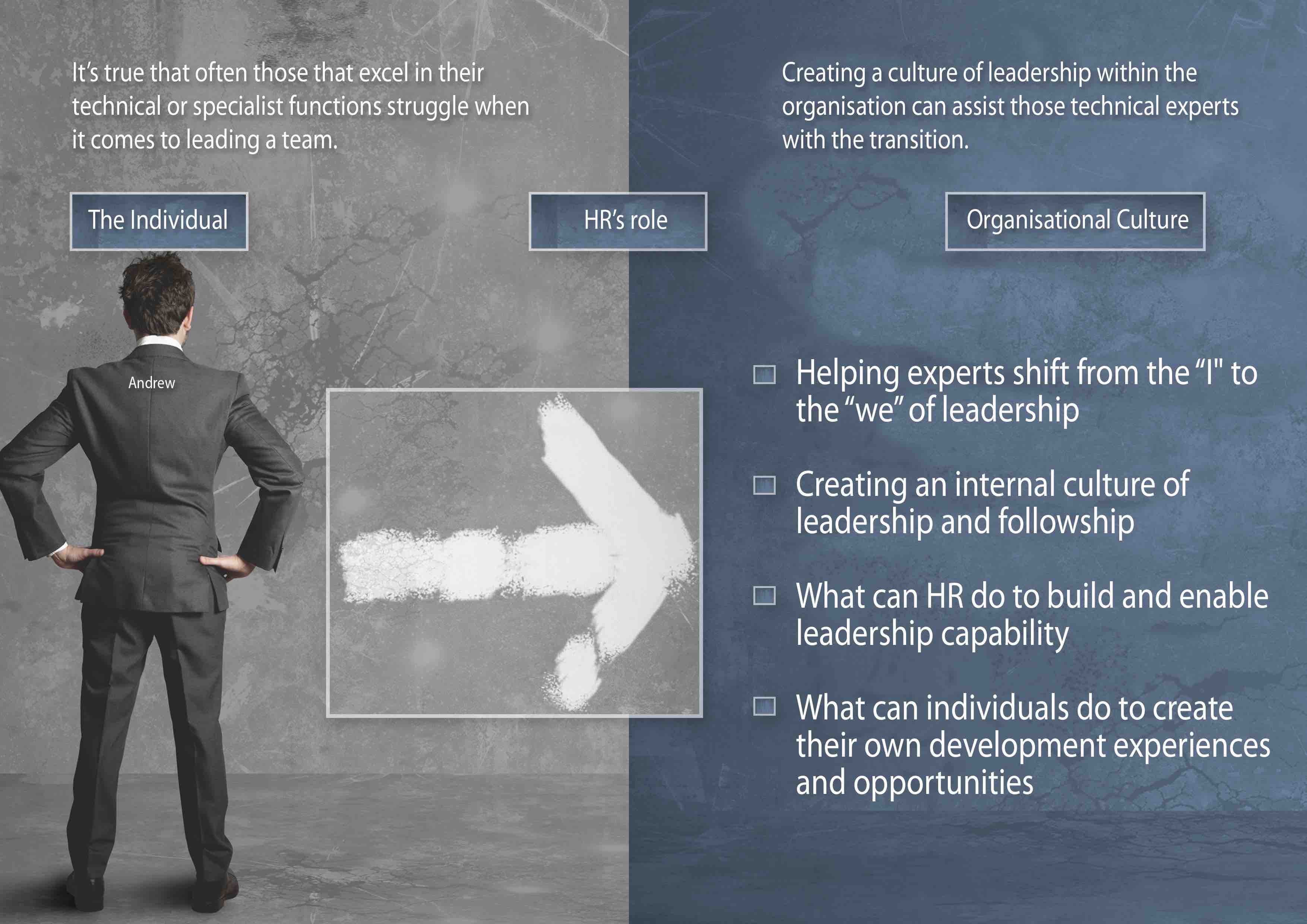
As many of you know, I had the opportunity to speak at the Perth HR Summit last week. It was great to hear from interesting speakers with different perspectives on what makes for commercial and value adding HR.
I took the opportunity to speak on my favourite topic – leadership. Specifically, how to move a high performing technical expert to take on a leadership role. The expert might be in the lab, or engineering or finance. Usually, they are extremely good at their role and they are promoted as a reward for their achievements as an individual contributor.
I suggested that there are three elements that are necessary to be working in concert to enable the successful move from the high performing technical expert to leader. These are:
- The individual and their mindset and approach
- HR and its programmes including development programmes
- The culture of the organisation
It is possible for the individual to operate in an environment where these are not present, but it is much more difficult.
This series of posts will look at each of the three elements in detail, starting with the individual.
The Individual
We know through the work of Dr Lois Frankel and others that the behaviours that are required of a new leader are quite different to that of the individual contributor. So, it is really important that the new leader understands what the new behaviours are, and what that means for them in terms of changed behaviours.
In practical terms, this usually means a proper induction with the technical expert, where the new role and the required competencies and behaviours are explained. It is during this induction that “leadership” as defined in the organisation is also described. The induction is a critical step and one that is often missed by organisations.
We also know that the mindset of the new leader is critical. Here I am thinking of the work for Dr Carol Dweck, who talks about the difference between a growth mindset and fixed mindset. And how a growth mindset is so critical to great leadership. There’s a great video that illustrates this concept and how important mindset is.
The individual also needs to take responsibility for their part in their success. Whilst the organisation will no doubt have some development and support; it is key that the individual realises that there is much that they can do in terms of learning. For example: trying new approaches, being open to new ideas, seeking out and listening to feedback and being open to failure. The individual should also consider what development they can take responsibility for – whether that is formal study, or seeking out a mentor and/or coach or looking for other opportunities internally and externally to learn and grow.
Here are some questions to ask of the individual moving into a new leadership role:
- Do they actually want the job? (some high performing technical experts really don’t want a leadership role)
- Do they understand the why/what of the job?
- Are they clear on the behaviours and competencies required?
- Do they have the right mindset around learning, failure and the new behaviours required?
- Are they ready to take responsibility for their career?
Until next time, happy leading.


